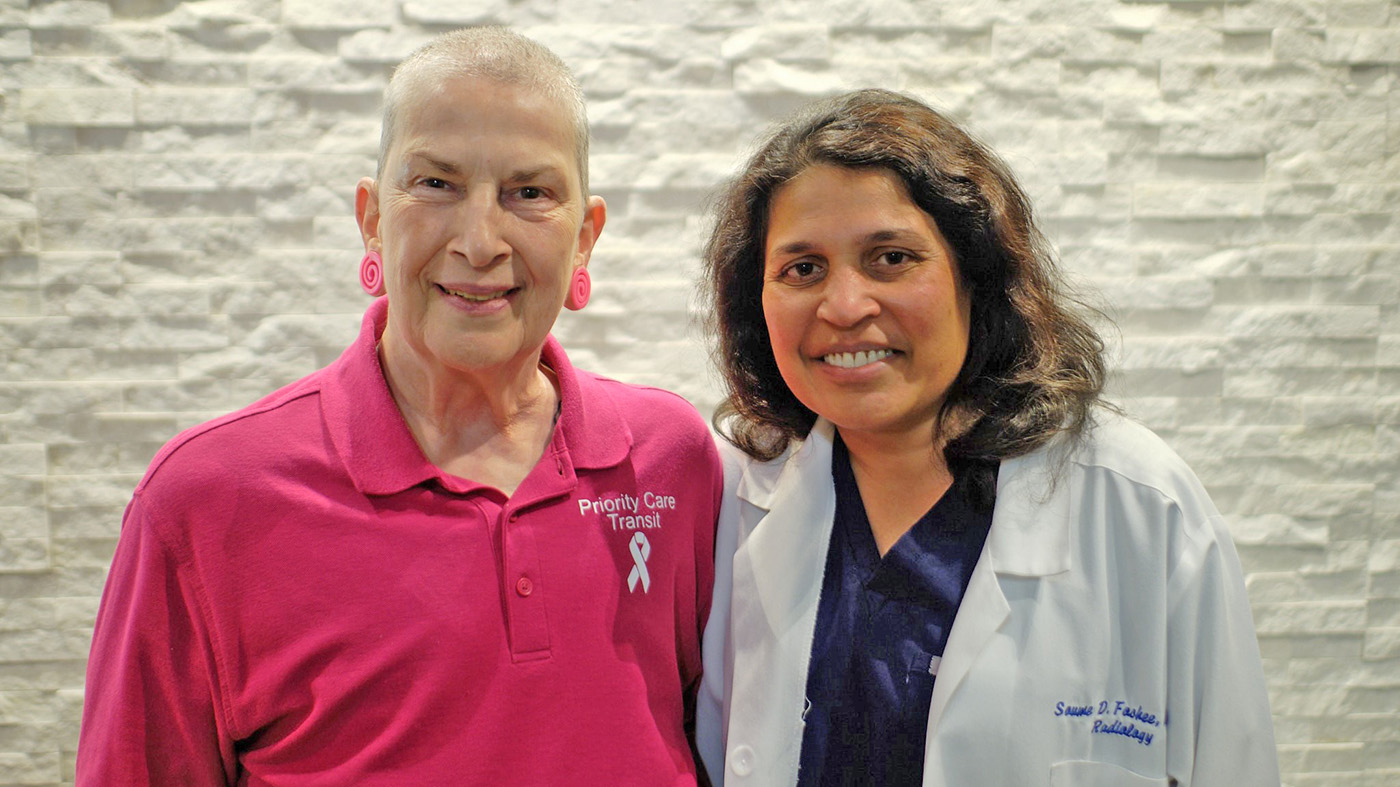When Dak Conrad, a six-year Navy Veteran, discovered a swollen and tender node under her arm, she knew that her life was about to change. Thankfully, her breast cancer was detected early, a fortunate break that spared her from the harsh realities of chemotherapy and radiation.
“I was devastated, but because it was caught early, we did early intervention,” she shared.
Following a double mastectomy, Conrad avoided additional treatments and now returns for annual sonograms. She describes her surgeon, Dr. Soume Foshee, North Texas VA staff radiologist (pictured above), as her “guardian angel” for performing the life-saving surgery and supporting her through a swift and minimally invasive approach.
Early detection makes a difference in a patient’s prognosis
Early detection was vital for Conrad’s outcome, underscoring the importance of routine screenings. The Centers for Disease Control and Prevention stresses that regular screenings are crucial, noting that when breast cancer is caught early, patients have a 99% five-year survival rate. This statistic highlights the difference early detection can make in a patient’s prognosis and quality of life.
Conrad’s support system was central to her journey, and at its core was her wife of 39 years. “We probably would have both broken if we weren’t together,” she said.
Her partner’s unwavering presence provided the emotional stability she needed, underscoring the significance of having reliable, compassionate support during such trying times. Conrad advocates for a balanced approach from friends and family.
“Be as positive as possible, as helpful as possible, without being overbearing,” she recalled.
Breast cancer patients experience a range of emotions—from isolation to resilience—so sensitivity to their fluctuating needs is essential.
Conrad got an elephant tattoo to symbolize her journey through cancer and the desire to live a long life.
One misconception that Conrad seeks to challenge, though, is that breast cancer is exclusively a woman’s disease.
According to the CDC, while breast cancer in men is rare, about one in 100 cases diagnosed in the U.S. involves a male patient. Increased awareness and reduced stigma for men seeking treatment are crucial in promoting early detection and intervention for all.
Conrad’s perspective on life shifted dramatically after her diagnosis. With the cancer behind her, she feels liberated to pursue her goals with a renewed sense of purpose. “My life is a clean slate. I can do whatever I want to do. I don’t feel I’ve been cheated,” she said.
Seek screenings as part of a proactive approach
For Conrad, self-advocacy was an integral part of her journey. By voicing her treatment preferences and working closely with her health care team, she maintained agency over her body and her future. Her message is clear. Understand your options, ensure the approach is right for you and seek screenings as part of a proactive approach to health.
Topics in this story
More Stories
Bob Jesse Award celebrates the achievements of a VA employee and a team or department that exemplifies innovative practices within VA.
The Medical Foster Home program offers Veterans an alternative to nursing homes.
Watch the Under Secretary for Health and a panel of experts discuss VA Health Connect tele-emergency care.








I too have breast cancer after being told by my VA primary care doctor “….those are just fibroids, don’t worry about them…” she used the 1-month previous mammogram (which showed nothing) as part of her “diagnosis”. Four months later a 9cm X 4cm mass was removed – that’s about the size of a new born kitten!!!! And they did NOT get it all. Anyway, my message to all females is: DO NOT RELY ON MAMMOGRAM ALONE!!! If you find any lumps DEMAND further screening not just your PCM’s “magic fingers”!!!!
a breast mamogram is fine, but I had breast cancer for a long time, yrs. it wasn’t until I had a needle biopsy that it was found. Why do you not do MRI’s to detect them. mams are not accurate
My wife went through the exact same thing as Ms. Conrad . Thanks to early detection she has been cancer free for 12 years.
To everyone get checked often it could be life saving.